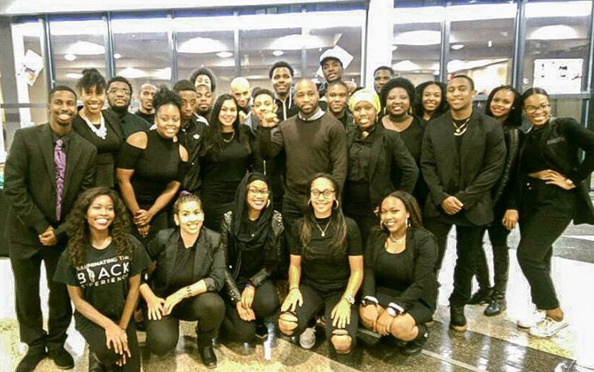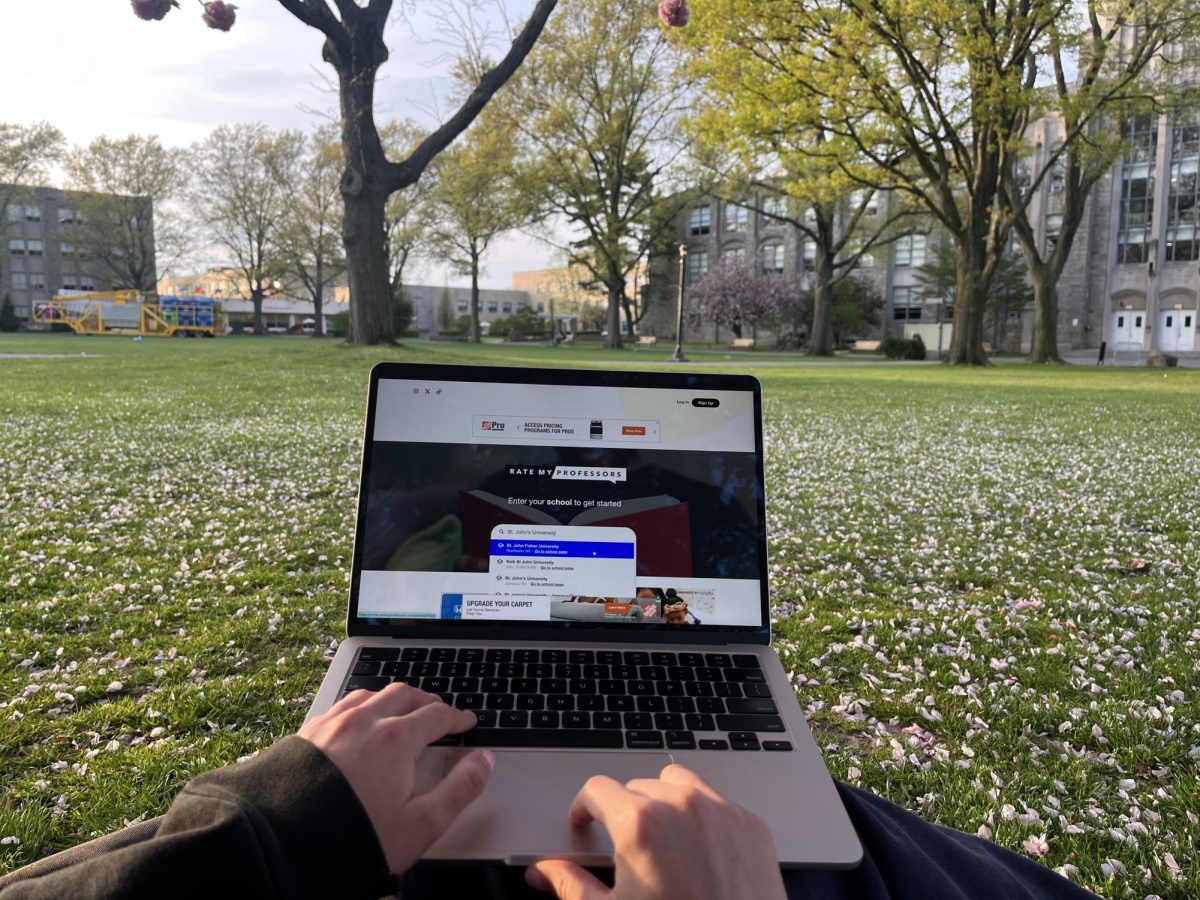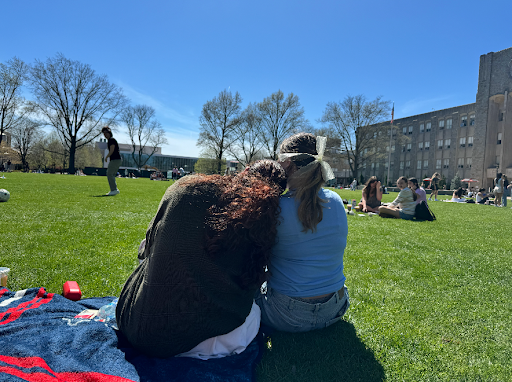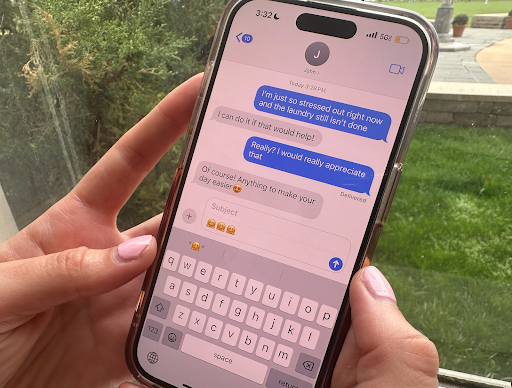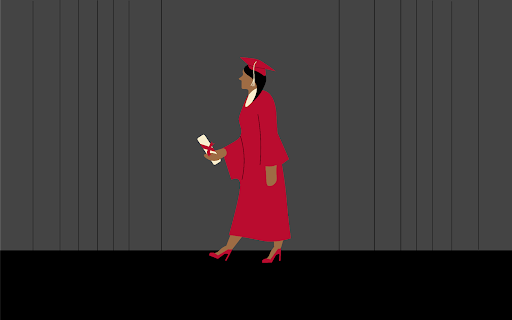Pride, dignity and freedom – that’s the meaning behind the Swahili word Haraya. That was also the name that six African-Americans St. John’s University students chose in 1968 when they created the organization. These six individuals probably didn’t know at that time that 48 years later Haraya would be one of the largest cultural organizations on the SJU Queens campus, as well as and one of the most popular. The Pan-African organization continue to gain the attention of many students from different backgrounds, but it also focuses on the empowering and enlightening the black community at St. John’s.
“I joined this organization because from the first time I stepped foot into a meeting it felt like home,” Ricardine Laventure, President of Haraya, said. “But even before I became actively involved in the organization, members has welcomed me with open arms as a part of the minority community on this campus,” she added.
According to Haraya’s blog page, the organization aims to “provide a platform that encourages students to succeed both academically and professionally.” Haraya is the umbrella organization for other organizations, such as African Students Association (ASA), Caribbean Students Association (CSA), Haitian Society and Latin American Students Organization (LASO). They are also partnered with the National Association for the Advancement of Colored People (NAACP) chapter here at St. John’s.
Laventure has been a member of Haraya for two years. According to her, she wanted to become part of a change that still means a lot to her.
“I began to get more involved as soon as I realized I had a platform to start the change I wanted to see, but also because I feel like I owed it to other students who look like me to have a safe space on this campus,” she said.
Laventure believes that Haraya has been “extremely successful in leaving a legacy.” According to her, an organization like this provides a voice for the students of Pan-African descent at St. John’s. It also informs and integrates those with different backgrounds but similar interest in knowing about what’s happening within the culture.
“From year to year the [organization] carries on what was started way back in 1968,” she said. “I would love to see Haraya expand outside of the St. John’s community more. Haraya is one of the many extremely successful and highly functional organizations on this campus and I think that other college campuses should be aware of the work we do here at St. John’s.”
Laventure said that one of the most common misconceptions people might have when it comes to Haraya is that it’s “just for black people, or even more specifically, African Americans.”
“I for once am the president and I am Haitian,” she said.
That idea that Haraya is only for black people is also not true for Chantel Ybarra. The sophomore with a Mexican background is highly involved with Haraya.
“Although I am not black, I did not find it a big deal when joining Haraya since they are welcoming and promote unity throughout the student body,” she said. “Also, I am here to serve the student body hence why I applied to be the community service chair. Whether I am black or not, dark or light skin, I am here to serve the student body.”
Ybarra has been a member of Haraya since her freshman year. She recalled that, back then, as she was looking to get more involved on campus, she connected with Haraya as friends would tell her about what they do.
“What Haraya means to me is a close-knit, loving group that aims to serve as a voice and ultimately bring positivity,” Ybarra said. “By doing this, Haraya leaves a legacy of excellency that allows me to feel confident on what life has to offer. Also becoming more aware of the current issues students at [St. John’s] are facing.”
According to Ybarra, getting involved with Haraya opened her mind and became more educated on the history of Pan-African. She said she got away from her comfort zone and by doing so, she was able to see much more than what she thought she knew.
“I read about these marches, but being in one definitely opened my eyes to the feelings the black community faces,” she said.
One of her best memories was when she was participating in providing Thanksgiving baskets to 15 low-income families. Alongside with her co-chair, Junior Doh, they contacted 14 other clubs and organizations and inquired if they’d participate. According to her, the outcome was great and its impact was significant for the families and those who helped.
“When I received the ‘thank you’ letter from the students, it had a profound [impact] on me,” she said. “We can get easily caught up in life and forget that unfortunately, there are others who are struggling more than us. Haraya has given me the opportunity to serve outside of the St. Johns community.”
The diversity at St. John’s is hard to ignore: as soon as you step foot on campus, you encounter different students from different backgrounds. However, even within such a diverse community, many believe that there’s still progress to be made. Vice president of Activities of Haraya, senior Maurisa Fraser, thinks that’s the case.
“I think the recent events that happened in social media shows why [it] is important – you saw what happened, right?” Fraser said.
Fraser is talking about an issue that occurred on Monday, Feb. 8, the same day as the Lunar New Year. When the St. John’s University Instagram page posted a photo celebrating the Chinese Lunar New Year, a student mentioned there was no recognition for Black History Month. Another student responded, “That’s because no one cares.”
That comment stirred discussions and commotion from various students. Over 300 people responded to using #ICare. According to Fraser, a lot of the concerned students reached out to Haraya for a response and voiced their concerns.
“Fortunately we go to a very diverse university that has a diverse student body, but that doesn’t mean we have that community – that black, organized community that we can say: okay, this is someone that I can turn to,” she said. “People think that diversity fixes all problems and makes everything okay, but it doesn’t.”
Fraser also brought up some of the misconceptions that students have regarding Haraya. Similar to Laventure, she said that there’s much more than just African-American within Haraya.
“I think what makes Haraya so significant it’s because it’s a Pan-African students coalition, so it’s not just about the black community, but it’s about the different kinds of black communities underneath Pan-Africanism,” she said.
Joining Haraya broadened her horizons and introduced her to the other communities within the organization itself as well as its umbrella partners.
“I identify as African-American and also Caribbean, so I identify with the Caribbean students, I identify with the just African-American, but I didn’t know as much about Haitian society or like even the Latin America, Hispanic, Latino culture,” Fraser said.
Fraser also thought it was important to mention how Haraya is opened to other organizations, cultures and identities, a trait that’s often forgotten by many people in the student body.
“We’re not going to change our values or who we are, but we do want to let you know that we’re open to other cultural organizations, to other cultures, to other identities,” Fraser said. “We’re open to you, you know? We’re not going to change who we are, but we’re still open to you.”
According to her, joining Haraya changed her college experience “tremendously.” One of her initiatives as an e-board member was to create a scholarship underneath Haraya. The scholarship will be debuted on their annual Black and White Ball, taking place on Feb. 19, in the D’Angelo Center Ballroom.
“I was able to be the change that I wanted to see in a more powerful way,” she said. “I wanted people to afford college more, so I created a scholarship underneath Haraya. For me, Haraya has just opened doors and to see other kinds of community.”
Being part of Haraya was something that Fraser didn’t really anticipate at first. She was one of those people who judged the organization before getting to know them.
“Everybody was like, “Maurisa you should join Haraya.” And I was like why? They’re so, ‘ugh’,” she recalled the time she was skeptical about the organization. “They’re feeling themselves. Who do they think they are running the campus, you know? That’s honestly how I felt. Then I was like, you know what? Let me just become a community chair. And I started to get to know them. And I would tell people: get to know us,” Fraser said.
“Some people are intimidated by us,” she said. “I was intimidated by Haraya my first year. And, I don’t know why is it that when a bunch of people of color come together for the greater good that people then feel intimidated,” Fraser said.
She also said that it took more than just going to one event or hearing rumors and outside opinions for her to get acclimated, and that individuals would have to check it out for themselves in other to really get to know the organization, its members and its message.
“They have a lot of flaws like any organization, but they’re working towards a bigger picture, and I think a lot of people forget what our mission statement is, which is to create a voice for people of color on this campus,” Fraser said. “So, always keep that in mind when we’re thinking about what Haraya is doing. Is it aligning with their mission statement? And our mission statement is to create a voice for people of color.”












